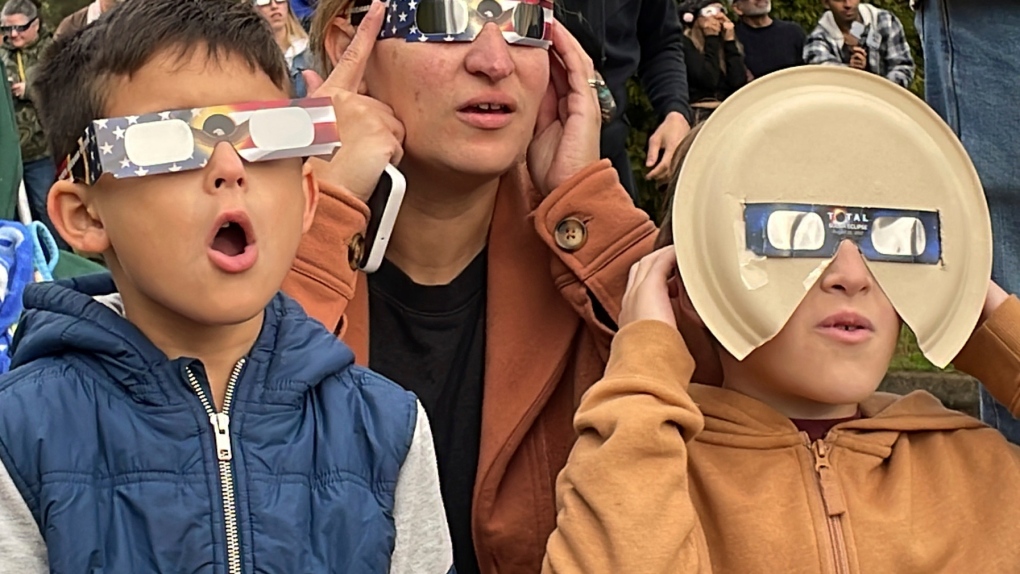
Demand soars for solar eclipse glasses in Canada. Are they worth buying?
CTV
The demand for total solar eclipse glasses used to safely view the rare celestial event has been ramping up as sellers, along with astronomy and eye-care experts in Canada, warn that viewing the eclipse with the naked eye is dangerous.
The demand for solar eclipse glasses used to safely view the rare celestial event has been ramping up as sellers, along with astronomy and eye-care experts in Canada, warn that viewing the eclipse with the naked eye is dangerous.
Jenna Hinds, executive director of the Royal Astronomical Society of Canada (RASC), says her organization has sold 70,000 pairs between August 2023 and February 2024 and sold out of its online stock in February.
"Demand is through the roof for this stuff," Hinds said in a phone interview with CTVNews.ca. "The sooner you get your hands on a pair of solar glasses, the better."
Robert Cockcroft, assistant professor at the department of physics and astronomy at McMaster University in Hamilton, Ont., and secretary of the Canadian Astronomical Society, says McMaster bought 600,000 eclipse glasses in mid-December, which is enough for all residents of Hamilton. About 500,000 have already been given away free of charge and the remaining ones have been mostly accounted for, he noted.
The rare celestial event will happen on Monday, April 8, in parts of Canada, the United States and Mexico. Most of North America will at least experience a partial solar eclipse. During a total solar eclipse, temporary darkness, or the moon's 185-kilometre-wide shadow, will blanket the path where the moon aligns perfectly between the Earth and the sun.
The next total solar eclipse won't happen until 2044 in Canada. Canada last experienced a total solar eclipse in 2008.
Elaina Hyde, director of the Allan I. Carswell Astronomical Observatory at York University in Toronto, says solar eclipse viewers such as eclipse glasses are a popular way to see the phenomenon safely. She says the observatory is providing them for free at its events. These viewers or glasses must have ISO (International Organization for Standardization) certification with ISO-12312-2, indicating they meet international safety requirements, she said.
